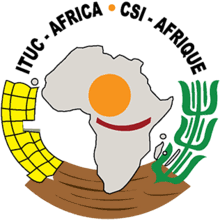Workers’ rights are under unprecedented assault across the globe, according to the 2025 Global Rights Index by the International Trade Union Confederation, as labour protections continue to erode in the face of authoritarianism, conflict, and corporate influence.
The report, unveiled at the start of the International Labour Conference in Geneva, paints a grim picture of deteriorating conditions for workers, with Europe and the Americas recording their worst performances since the Index was launched in 2014.
Only seven countries now meet the highest standard for respecting workers’ rights, a drastic decline from a decade ago, while 39 nations have fallen to the index’s lowest category for repressive regimes.
“If the current trajectory continues, no country will retain a rating of 1 within the next ten years,” the ITUC warned in the report obtained on Tuesday.
Twelve countries, including Afghanistan, Libya, Myanmar, Somalia, and Yemen, have been assigned the lowest possible rating of 5+.
This signifies a total breakdown of the rule of law amid violent conflict. Workers in these nations face extreme repression, insecurity, and collapse of state protections.
“Workers are under siege around the world,” General Secretary of the ITUC, Luc Triangle, stated. “This year’s Index exposes the betrayal of the post-WWII system built on democracy, justice, and trade union rights.”
The ITUC said that 75 per cent of countries now deny workers the right to form or join trade unions, while 74 per cent obstruct union registration.
The report found that 45 per cent of countries restrict freedom of speech and assembly, 71 recorded arrests and detentions of workers, and 40 reported incidents of violence.
The Index, which assesses 151 countries using 97 indicators based on International Labour Organisation standards, highlights a widespread crackdown on union activities and civil liberties.
The report recorded a growing intolerance for dissent and a lack of accountability in many governments.
While most countries saw no improvement or experienced regression, Australia improved its rating to 2, and both Mexico and Oman moved up to 3.
Meanwhile, seven countries, including Italy, Argentina, Costa Rica, Panama, Georgia, Niger, and Mauritania, slipped to lower categories.
At the ongoing International Labour Conference, the ITUC is pushing for stronger enforcement of labour standards, formalisation of informal work, improved protections in the platform economy, and global measures to address biological hazards in the workplace.
The violations highlighted in the 2025 Index are expected to guide discussions during the conference’s Committee on the Application of Standards.
“We must rebuild economies that serve people, not corporations,” Triangle stressed. “We need strong, independent unions and international institutions that are accountable to those they were created to protect.”
He added that the global labour movement is determined to fight for a better future: “Next year’s index must reflect real progress. The time for action is now.”















